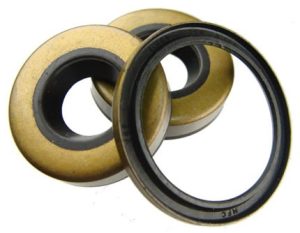
Lip seals play an important role in preventing fluid and gas leaks in machinery. Even when exposed to heat and pressure, they will prevent these substances from leaking. Some machines use them to prevent coolant from leaking, whereas others use them to prevent combustion gases or air from leaking. Regardless, lip seals offer a simple and effective solution to prevent leaks in machinery.
What Are Lip Seals?
Lip seals are ring-shaped elastomeric seals that are designed for use around a shaft. Also known as rotary seals, they are characterized by the presence of a lip. Lip seals aren’t solid rings. Rather, they feature a lip. This lip allows them to create a secure fit around shafts.
How Lip Seals Work
Lip seals work by sealing the mating surface around a shaft. Machinery may feature one or more rotary shafts. If there’s pressurized liquid or gas around a rotary shaft, a lip seal may be required. It will create a secure seal that prevents the liquid or gas from leaking.
All lip seals have a lip. Lubricant may be applied inside of the lip. Grease, for instance, is oftentimes applied inside of the lip. The lip will contain the grease while subsequently allowing the lip seal to reduce friction. The shaft can freely rotate thanks to the lubricated lip seal.
When used in conjunction with a lubricant, lip seals do more than just prevent leaks; they allow shafts to rotate more easily by reducing friction.
Different Types of Lip Seals
There are different types of lip seals. While most of them have a single lip, some of them have multiple lips. You can find lip seals with a single lip, two lips or even three lips.
Lip seals are also available in spring-loaded and non-spring-loaded designs. Spring-loaded lip seals feature an integrated spring. With this spring, they are able to withstand greater pressure than their non-spring-loaded counterparts.
You can find lip seals in different materials. They are typically made of an elastomeric material that, when exposed to heat and pressure, will expand. As they cool down, the lip seals will return to their original size. But the specific type of elastomeric material used in a lip seal’s construction may vary.
In Conclusion
Not all mechanical seals are the same. Some of them feature a different design than others. Lip seals are mechanical seals that have one or more lips.
